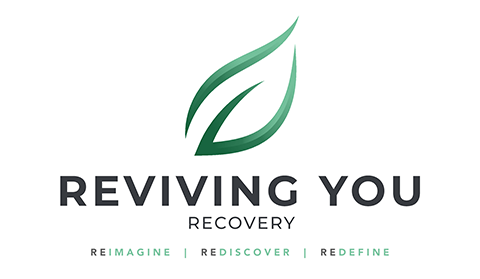
Benzodiazepine Addiction
Our compassionate team of experts is here to help you break free from the grip of Benzodiazepine Addiction and reclaim your life.

What are benzodiazepines?
Benzodiazepine addiction is a harrowing spiral into dependence on a class of prescription drugs known for their calming and sedative effects. These medications, such as Xanax, Valium, and Ativan, are commonly prescribed to treat anxiety, insomnia, and certain seizure disorders. However, what begins as a legitimate medical treatment can quickly transform into a troubling addiction.
Over time, the brain adapts to the presence of benzodiazepines, requiring higher doses to achieve the same calming effect. This tolerance, coupled with a growing psychological and physical dependence, can result in a devastating cycle of misuse. As the addiction tightens its grip, individuals may struggle with withdrawal symptoms, such as increased anxiety, insomnia, muscle tension, and even seizures.
Benzodiazepine addiction: A descent into dependence
Benzodiazepines are a type of central nervous system depressant that belongs to a classification of drugs commonly known as tranquilizers This synthetic medication is most commonly prescribed in pill form for the treatment of anxiety disorders, insomnia and other mental health issues.
If you or a loved one are struggling with benzodiazepine addiction, seeking help is crucial. There are several signs that indicate it is time to reach out for assistance. If the use of benzodiazepines has escalated beyond the prescribed dosage or frequency, it’s important to seek help. Additionally, experiencing withdrawal symptoms or feeling unable to function without benzodiazepines are red flags that support should be sought. Another indicator is when the use of benzodiazepines starts impacting various aspects of life, including relationships, work, or personal well-being. Seeking help for benzodiazepine addiction is essential in reclaiming control and starting on the path to recovery.
The ripple effects of benzodiazepine addiction can strain relationships, impair work performance, and deteriorate one’s physical and mental well-being. Shedding light on this issue is crucial to ensuring that those affected receive the necessary support and resources for recovery.
Benzodiazepine abuse can lead to addiction
The truth is that benzo addiction is all too common. While some people become physically addicted to this medication as prescribed by their doctor, others buy benzos on the street and abuse them to get high. They cause a very relaxed, tranquil, calm feeling. Most people pop large numbers of these pills to get this effect. Others crush them up and snort them up their nose. Some people dilute these tranquilizers and shoot them up with needles.
Because benzos lead to physical dependency, people who take them regularly quickly build a tolerance. This means they need to take more and more of the medication the get the same effect. Before long, the body begins to physically crave the drug between doses. As a result, the user just continues to up their dosage and take more pills.

People use benzos because they love the way they make them feel.
What they don’t realize is that – if they are not careful – they can get hooked without even realizing it. This drug has a way of creeping up on people. Once someone becomes physically addicted, they will go into dangerous withdrawal if they suddenly stop taking benzos. If you or your loved-one is struggling with Benzodiazepine Addiction, it’s time to reclaim your life and well-being. Take the first step towards a healthier, brighter tomorrow. Call us today.
Most commonly used benzodiazepines
Believe it or not, there are more than 200 different types of benzodiazepines in the world. Most people have never heard of most of them because they are only used for surgical procedures or they are not available in the United States.

Alprazolam (Xanax)
It is thought that it works by enhancing the activity of certain neurotransmitters in the brain.

Clobazam (Onfi)
Used with other medications to treat seizures caused by Lennox-Gastaut syndrome, in people who are at least 2 years old.

Clonazepam (Klonopin)
Used to treat certain seizure disorders (including absence seizures or Lennox-Gastaut syndrome) in adults and children.

Chlordiazepoxide (Librium)
Used to treat anxiety disorders and may also be used short-term to treat symptoms of alcohol withdrawal, or anxiety you may have before a surgery.

Diazepam (Valium)
Used to treat anxiety disorders, alcohol withdrawal symptoms and is sometimes used with other medications to treat muscle spasms and stiffness, or seizures.

Clorazepate (Tranxene)
Used to treat anxiety disorders, partial seizures, alcohol withdrawal symptoms.

Lorazepam (Ativan)
Lorazepam is used in adults and children at least 12 years old to treat anxiety disorders.

Temazepan (Restoril)
Used short term to treat insomnia. Temazepam works by slowing down the central nervous system, causing drowsiness which helps patients fall asleep.

Triazolam (Halcion)
Used short term (7 to 10 days) to treat insomnia and may also be used for other purposes.

Benzodiazepine withdrawal
The pain of withdrawal (also known as detox) is often what keeps people stuck in cycle of addiction for months or even years. Many people have a sincere desire to stop using powerful substances like Xanax or Valium, but they quickly find that they are unable to remain abstinent for any length of time. This is because they cannot bear the physical agony and mental torture that accompanies withdrawal and the unrelenting cravings that come with it.
Benzodiazepine withdrawal happens when you have been taking this substance for an extended period of time and you abruptly stop taking it. When you abuse tranquilizers, your brain and body need them to function. By quitting your drug of choice, you interrupt natural processes that rely on the drug’s chemicals to get through the day. You could say this makes your brain and body very angry, and they respond in violent protest by producing withdrawal symptoms.
The Importance of Professional Care for Benzodiazepine Withdrawal
Addiction experts agree that benzodiazepine withdrawal is not only an incredibly unpleasant experience, it is also life-threatening and should be approached with extreme caution. You should never try to detox from benzos on your own cold turkey. This could be a fatal decision. We cannot stress enough that benzodiazepine withdrawal can be dangerous and life-threatening. This is why we recommend a professional medical detox.
- Extreme anxiety
- Depression
- Uncontrollable crying
- Tremors also known as the shakes
- Insomnia
- Seizures, coma, death (in extreme cases)
- Nightmares and other sleep disturbances
- A total loss of motivation
- All-consuming fatigue
- Restlessness
- A young person experiencing peer pressure
- Low self-esteem
- High stress situations
- Have a close relative or family member with an alcohol disorder
- Experiencing a traumatic event
Acute Benzodiazepine withdrawal
This is the first phase of addiction recovery. It happens approximately 12 to 36 hours after you take your last dose of the medication. Acute withdrawal can last anywhere from three days to two weeks. However; the average person completes this phase of withdrawal in an average of seven days.
During this period, withdrawal symptoms will be extreme – even unbearable. Most people do not stay sober through this phase of the withdrawal process because it is simply too painful. Acute withdrawal is the most dangerous part of the detoxification process. Seizures, coma, and death are all very real possibilities during the first week.
Post-acute Benzodiazepine withdrawal
This is the second phase of detox. Generally, once someone survives the pain of Phase One, they are no longer at risk for having seizures or other major health complications. At this point in the process, withdrawal symptoms begin to subside and become more bearable. However; there is still a long road ahead.
Many people experience post-acute withdrawal for as long as six months after they have stopped taking benzos. With time, the body and brain will begin readjusting to normal functioning – but this is an ongoing process. Most people complain of extreme anxiety, depression, sleep problems, hostility, and cravings for some time after they quit using tranquilizers.
Struggling with Benzodiazepine addiction?
It’s time to reclaim your life and well-being. Your future starts here. Don’t let Benzodiazepine dependency control your future—reach out to us today. Take the first step towards a healthier, brighter tomorrow.







